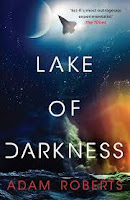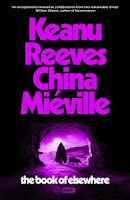In 1987 Gene Wolfe released the novel Urth of the New Sun. A coda, it was intended as a piece of fiction supplemental to his landmark tetralogy Book of the New Sun. Some readers had been left confused by the original series, and as a helping hand Wolfe offered Urth. While an interesting piece of fiction, it took the subtle and made it overt, something Book of the New Sun did not need. In 2024 another author has chosen to revisit a beloved series. After a decade away, Jeff VanderMeer returns to the Area X/Southern Reach trilogy with a surprise fourth installment, Absolution. Spurious or necessary?
Each of the three Area X novels, Annihilation, Authority, and Acceptance, is relatively self-contained. There is something extra to be gained reading all three, but they largely work independently. Absolution also does. It can be read on its own. But it departs from the three prior novels by being more of a tapestry of story than pure novel. It is, in essence, three short stories, or more specifically, a short story and two novellas.








































